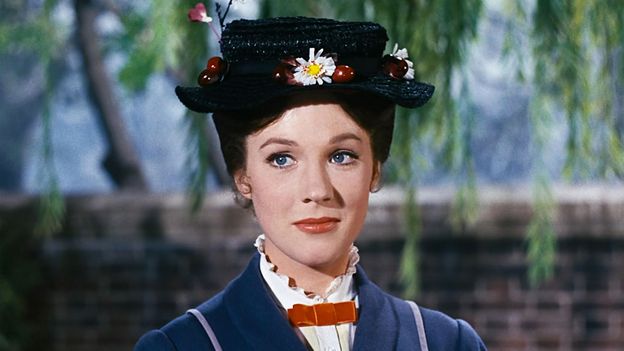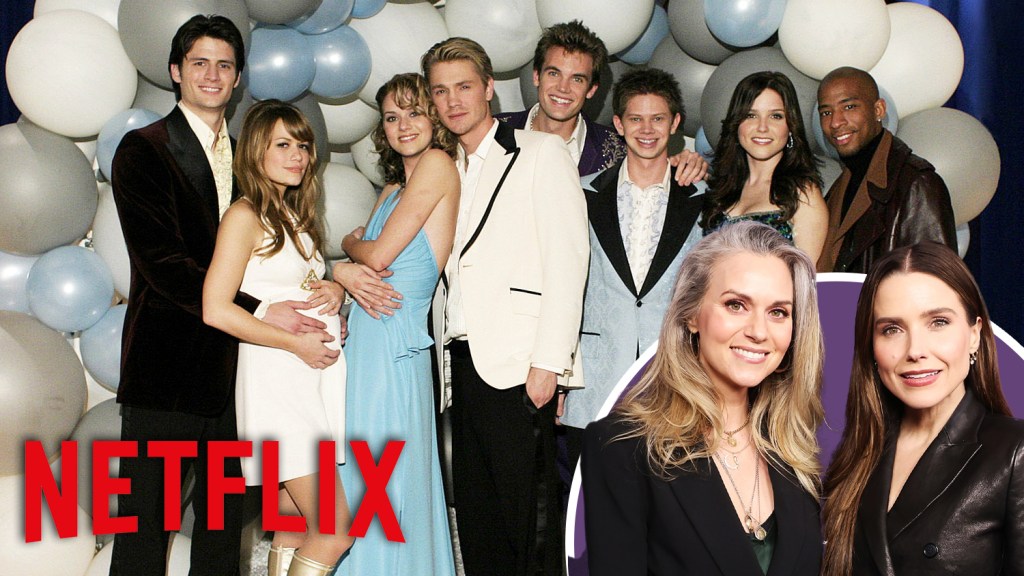Mary Poppins' Legacy: Julie Andrews on Being Typecast

Julie Andrews, the beloved Hollywood star, has reflected on the enduring impact of her iconic role as Mary Poppins, acknowledging the mixed legacy of being typecast by the sweet, wholesome persona she embodied in the 1964 Disney film.
The film, based on the popular books by P.L. Travers, catapulted Andrews to international fame and cemented her image as the epitome of a "practically perfect" nanny. However, even in a 1976 BBC interview, Andrews expressed her awareness of this persistent public perception.
"Mary Poppins" depicted the extraordinary nanny descending from the London skies, umbrella in hand, to transform the lives of the troubled Banks family in 1910. Through a series of magical adventures, she mended family relationships and taught them to find joy in their daily routines.
The project was a long-held dream of Walt Disney, who, in the 1940s, promised his daughters, fans of the books, that he would adapt them for the big screen. However, Travers proved to be a formidable obstacle, famously resistant to Disney's more whimsical and joyful interpretation of her darker narratives. After two decades of negotiations, Travers finally relented, driven by financial constraints, despite her concerns about Disney's vision.
Disney's determination to bring the beloved character to life extended to his casting choices. Despite Travers' portrayal of Mary Poppins as plain, Disney envisioned a "practically perfect" nanny and saw Julie Andrews as the perfect fit.
Andrews had already achieved success on stage both in the UK and the US. Born in Surrey in 1935, her exceptional singing talent and four-octave vocal range were nurtured by her mother and stepfather, propelling her towards a career on stage. By the age of 12, she captivated West End audiences with her melodic soprano voice. Her US Broadway debut in 1954, followed by her iconic portrayal of Eliza Doolittle in the 1956 musical "My Fair Lady," solidified her status as a rising star.
Disney, having been impressed by Andrews' performance as Queen Guinevere in the musical "Camelot," approached her backstage in 1962 and offered her the titular role in his upcoming film.
âI thought he was just being nice, and coming to visit," Andrews shared with BBC's "The One Show" in 2014. "But he asked if I would be interested in coming to Hollywood to see the designs and to hear the songs he was planning for this movie he intended to make. And I was horrified, and I said âoh Mr Disney, I would love it, I would love it, but I have to tell you, I'm pregnantâ.â
Disney, known for his unwavering dedication to his vision, simply replied, "That's alright, we'll wait."
The role proved to be transformative for Andrews, showcasing her remarkable singing, dancing, and comedic talents. She brought warmth and a touch of enigma to the prim nanny, while her performances of songs like "A Spoonful of Sugar" and "Supercalifragilisticexpialidocious" showcased her charm and flawless voice.
Andrews acknowledged the film's impact in her 2019 memoir, "Home Work," writing, "In retrospect, I could not have asked for a better introduction to film, in that it taught me so much in such a short period of time." The movie's innovative blend of live-action, animatronics, and animation, which allowed children to magically enter pictures and chimney-sweeps to dance with penguins, captivated audiences.
"Mary Poppins" became the highest-grossing film in the US in 1964, surpassing "My Fair Lady," despite Andrews' initial role in the Broadway production. The film received 13 Academy Award nominations, winning five, including Best Actress for Andrews and Best Song for "Chim Chim Cher-ee."
The following year, Andrews' performance as the governess Maria in "The Sound of Music" earned her another Oscar nomination and further solidified her status as a major Hollywood star. However, this string of successful "nanny" roles contributed to the persistent public perception of Andrews as a sweet and virtuous figure.
In the years that followed, Andrews actively sought out darker dramatic projects, such as Alfred Hitchcock's "Torn Curtain" (1966) and the spy drama "The Tamarind Seed" (1974), while declining roles in films like "Chitty Chitty Bang Bang" (1968) and "Bedknobs and Broomsticks" (1971), which could have reinforced this wholesome image. She also attempted to subvert this perception off-screen, admitting to André Previn in a 1987 BBC interview that she had a bumper sticker on her car proclaiming: "Mary Poppins Is A Junkie."
In both the 1976 interview and again in her 1992 appearance on BBC Radio 4's "Desert Island Discs," Sue Lawley questioned Andrews about her frustration with her "sugary-sweet" image.
While Andrews acknowledged wanting to expand her range and take on diverse roles, she ultimately embraced her âMary Poppinsâ legacy, stating, "Do you ever wish you hadn't done it?" "No, never," she replied. "I must be truthful although I do giggle and there is an awful lot of teasing in the family about my image and things like that. I don't regret it at all."
Julie Andrews' legacy is undeniably intertwined with the iconic character of Mary Poppins. While acknowledging the limitations of being typecast, she ultimately embraces the role and its lasting impact on her career and on audiences worldwide.





